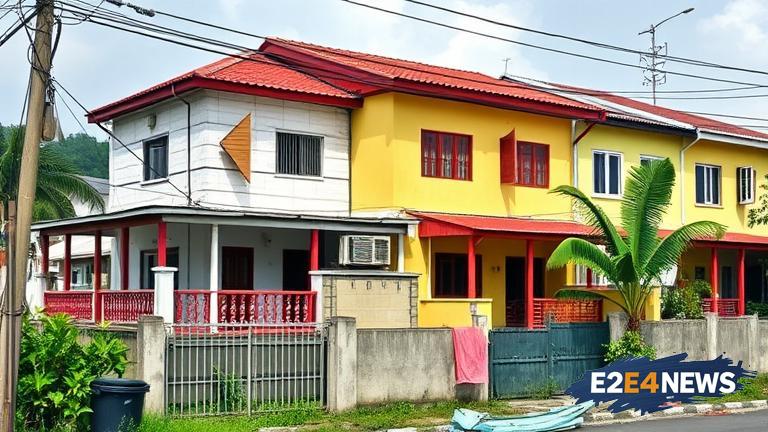The Sabah Progressive Party (SAPP) has sounded the alarm over the Urban Renewal Act, cautioning that it could have far-reaching and devastating consequences for homeowners and communities in Sabah. According to SAPP, the Act grants excessive powers to authorities, allowing them to acquire private properties without adequate compensation or consultation with affected parties. This, the party argues, could lead to the displacement of long-time residents, the destruction of community heritage, and the erosion of individual rights. The Urban Renewal Act, which aims to revitalize urban areas, has been touted as a means of promoting economic growth and development. However, SAPP contends that the Act’s provisions are overly broad and could be used to justify forced evictions, demolitions, and land grabs. The party has called on the state government to reconsider the Act and engage in meaningful consultations with stakeholders to ensure that the rights and interests of Sabahans are protected. SAPP’s warnings have resonated with community leaders and residents, who fear that the Act could be used to displace them from their homes and destroy their livelihoods. The party’s concerns are not unfounded, as similar urban renewal initiatives in other parts of the country have resulted in widespread displacement and social unrest. In recent years, Sabah has experienced rapid urbanization, with many rural areas being transformed into urban centers. While this growth has brought economic benefits, it has also created new challenges, including housing shortages, traffic congestion, and environmental degradation. The Urban Renewal Act, if implemented without proper safeguards, could exacerbate these problems and create new ones. SAPP has urged the state government to adopt a more nuanced approach to urban renewal, one that balances economic development with social justice and community welfare. The party has also called for greater transparency and accountability in the implementation of the Act, including the establishment of independent oversight mechanisms to prevent abuses of power. As the debate over the Urban Renewal Act continues, it remains to be seen whether the state government will heed SAPP’s warnings and take steps to address the concerns of Sabahans. The outcome of this debate will have significant implications for the future of urban development in Sabah and the rights of its citizens. In the meantime, SAPP will continue to advocate for the rights of Sabahans and push for a more equitable and sustainable approach to urban renewal. The party’s efforts have been supported by various community groups and civil society organizations, which have expressed solidarity with SAPP’s stance. As the situation unfolds, it is clear that the Urban Renewal Act has become a major point of contention in Sabah, with far-reaching implications for the state’s development and the well-being of its people. The Act’s provisions have sparked intense debate and discussion, with many calling for a more comprehensive and inclusive approach to urban renewal. Ultimately, the fate of the Urban Renewal Act will depend on the state government’s willingness to listen to the concerns of Sabahans and adapt its policies to meet their needs. SAPP’s warnings have served as a wake-up call, highlighting the need for greater caution and consideration in the implementation of urban renewal initiatives. By prioritizing the rights and interests of Sabahans, the state government can ensure that urban development is both sustainable and equitable. The Urban Renewal Act, if implemented wisely, could be a powerful tool for promoting economic growth and improving the quality of life for Sabahans. However, if mishandled, it could have disastrous consequences, leading to social unrest, displacement, and environmental degradation. As Sabah continues to navigate the challenges of urbanization, it is essential that the state government adopts a thoughtful and inclusive approach to development, one that balances economic growth with social justice and community welfare.
